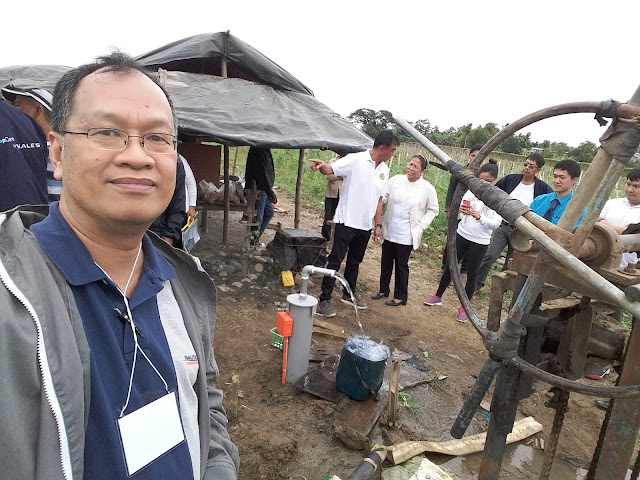SOLANA, CAGAYAN-Around twenty-six (26) farmers from the Cadaanan United Farmers Association (CUFA) in Solana, Cagayan province recently completed the training on the
first batch of Farm Business School (FBS) conducted by the Department of
Agrarian Reform Provincial Office in Cagayan (DARPO-Cagayan). The FBS is a hands-on intensive training originally formulated by the Food and Agriculture Organization of the United Nations intended to extend entrepreneurial knowledge and skills to farmers who would
be able to manage farm business operations on their own.
The Food and Agriculture Organization (FAO), in a 2011 Report
stated that farmers need to adopt their farm business to market changes and to
improve their efficiency, profitability and increase their income in order to
be competitive and be able to take advantage of emerging opportunities.
The FAO is an intergovernmental organization which has 194 member-nations,
two associate members and one member organization, the European Union. Its
employees come from various cultural backgrounds and are experts in the
multiple fields of activity FAO engages in. FAO’s staff capacity allows it to
support improved governance among others, generate, develop and adapt existing
tools and guidelines and provide targeted governance support as a resource to
country and regional level FAO offices. Headquartered in Rome, Italy, FAO is
present in over 130 countries.
The FBS was developed to improve the farmer-producers'
entrepreneurial and management skills. Participants work and learn as a group through
hands-on activities, addressing issues pertaining to the supply chain market
challenges. Experiments on crop production are also encountered to improve
existing practices with the end of increasing the socio economic benefits
through participation in agricultural and market activities.
The training includes activities that study the strengths,
weaknesses, opportunities, and threats analysis, pinpointing and introduction
of fresh products with packaging, evaluating profit margins, and crafting a
business plan. Farmer-participants interact with market and industry players
(traders, investors, suppliers). After which they advance as fully capacitated
agricultural entrepreneurs.
Traditionally, Filipino farmers are seen as mere producers of
agri products and not as businessmen. As such, they usually do not earn much
from selling their produce as they are unskilled in terms of business acumen. Because of that, only the middlemen and the
traders are at the receiving end of the profits out of the farmers’ toil.
Worse, after paying his debts to usurers, he is left with nothing when the
planting season begins and again, he is forced to borrow planting capital at
usurious rates and so begins another never-ending cycle of oppressive
indebtedness.
The FBS enhances the capacity of farmers to take part and
benefit from agricultural market connectivity and builds on the collective/group
experiential learning of fellow farmers and shifting from originally production
oriented to a business-oriented event. Additionally, there are also ongoing FBS sessions in Alcala, Cagayan for the same purpose being undertaken by DARPO-Cagayan. (Photos by: Elmer Custodio and Santi Mabborang)
 |
| Traditionally,
Filipino farmers are seen as mere producers of agri products and not as
businessmen. As such, they usually do not earn much from selling their produce
as they are unskilled in terms of business acumen. |
 |
| The
training includes activities that study the strengths, weaknesses,
opportunities, and threats analysis, pinpointing and introduction of fresh
products with packaging, evaluating profit margins, and crafting a business
plan. |
 |
| Participants
work and learn as a group through hands-on activities, addressing issues
pertaining to the supply chain market challenges. |
 |
Experiments on crop production are also encountered to
improve existing practices with the end of increasing the socio economic
benefits through participation in agricultural and market activities.
|
The FBS enhances the capacity of farmers to take part and
benefit from agricultural market connectivity and builds on the collective/group
experiential learning of fellow farmers and shifting from originally production
oriented to a business-oriented events.























































